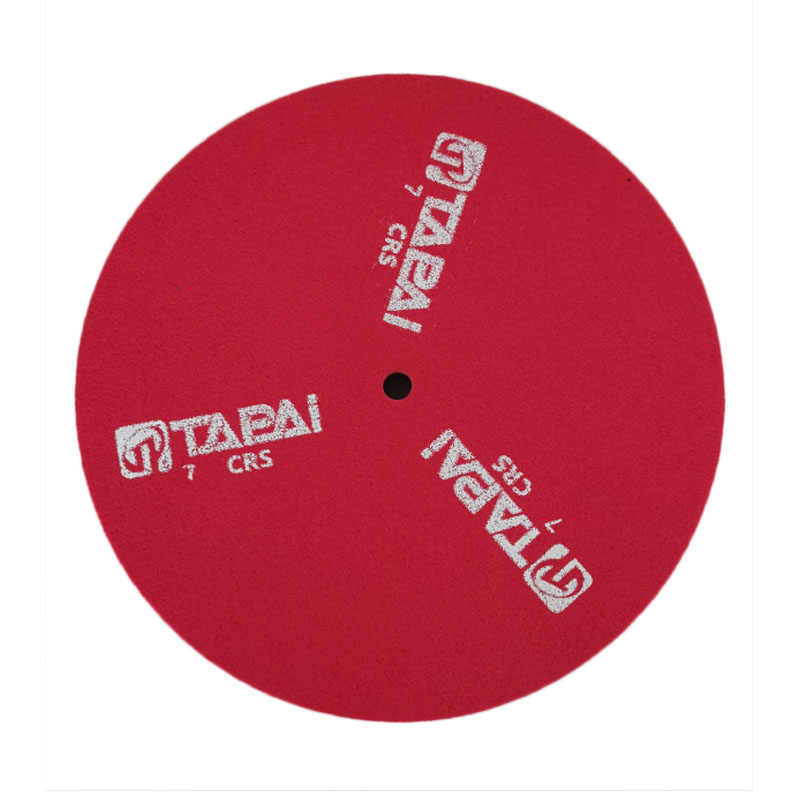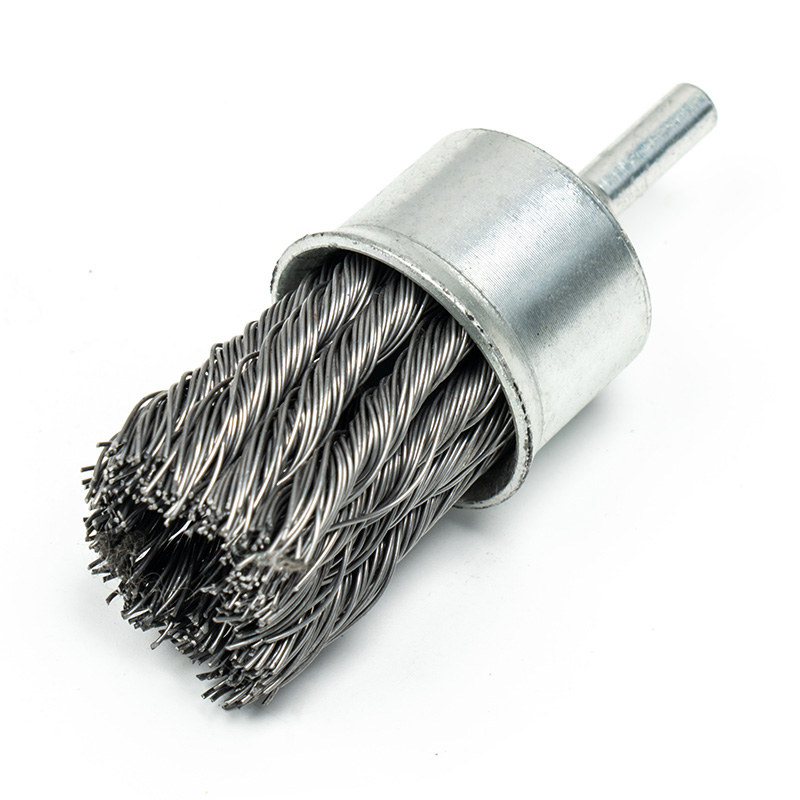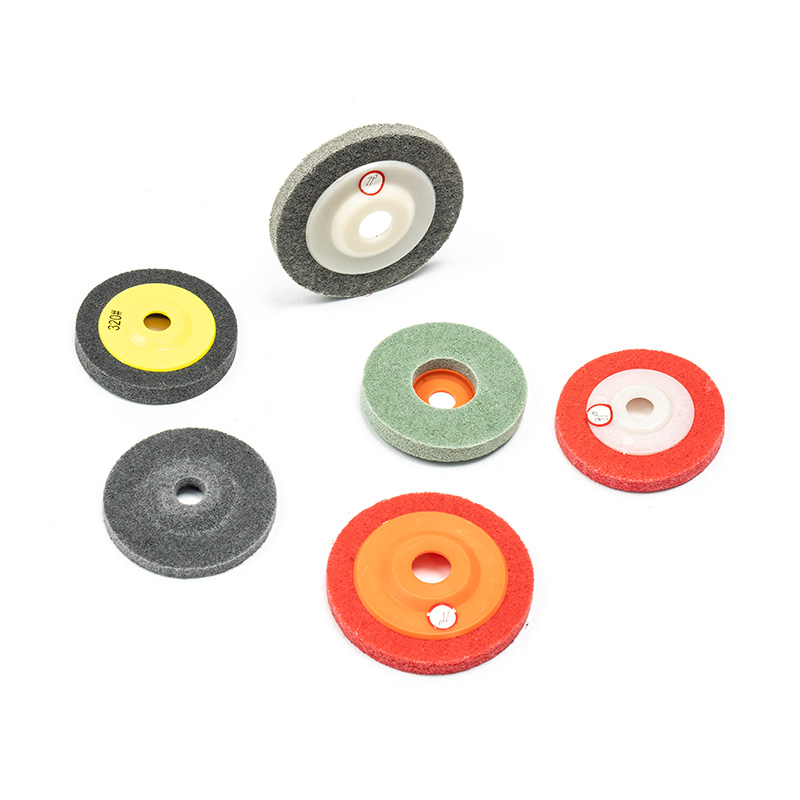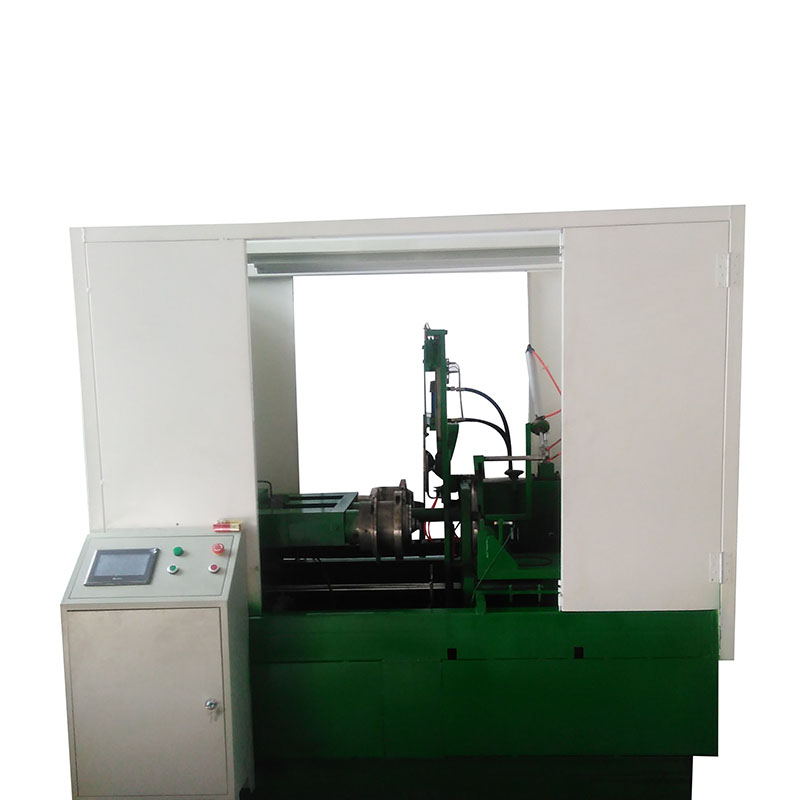Cat:Wire Wheel Brush
Twist Wire Pen-Type Wire Brush: Compact and Versatile Cleaning Tool The twist wire pen-type wire brush is a compact, han...
See DetailsNon-Woven Fiber Wheel is a versatile tool commonly used in various industrial applications for grinding, polishing, and finishing. These wheels consist of non-woven materials, typically made from synthetic fibers, abrasive grains, and bonding agents. Unlike traditional grinding wheels, they offer unique properties such as flexibility, consistent cutting action, and the ability to adapt to complex surfaces. However, one of its important attributes is its durability and wear resistance, which is critical for achieving efficient and long-lasting results in industrial settings.

Composition and Material Structure
The wear resistance of a Non-Woven Fiber Wheel largely depends on the materials that make up its structure. The fiber mesh, usually made from nylon, polyester, or other synthetic materials, is impregnated with abrasive particles like aluminum oxide, silicon carbide, or ceramic grains. The bond used to hold these abrasive particles in place also plays a significant role in determining the wheel's durability. The abrasive grains are uniformly distributed across the wheel, ensuring that the wheel wears evenly over time, maintaining its effectiveness throughout its life cycle.
Factors Affecting Wear Resistance
Several factors influence the wear resistance of a Non-Woven Fiber Wheel, including the type and hardness of the abrasive material, the density of the fibers, the type of bond used, and the application method. Softer abrasives tend to wear out faster, but they provide a finer finish. In contrast, harder abrasives offer more durability and can handle tougher materials, but they may create a rougher finish. The density of the fiber mesh also affects wear resistance—denser wheels generally last longer because they can withstand greater pressure and friction without breaking down. Additionally, the bond type affects how the abrasive grains stay in place as the wheel is used.
Comparing Wear Resistance to Other Grinding Tools
When compared to traditional grinding or sanding tools, Non-Woven Fiber Wheels offer good wear resistance in certain applications. For example, their ability to maintain a consistent cutting action without clogging or losing their abrasive qualities makes them ideal for delicate materials or surfaces that require frequent finishing. Unlike sandpaper or conventional abrasive wheels, which can lose effectiveness as the abrasives wear off, it continues to deliver a consistent finish by exposing fresh abrasives from the underlying layers as the outer surface wears down.
Durability in Specific Applications
The durability of Non-Woven Fiber Wheels is particularly evident in surface finishing tasks that involve metal, plastic, or wood. They excel in polishing metal components, removing oxidation, and creating a smooth, even surface without causing damage. In automotive, aerospace, and manufacturing industries, these wheels are often used for deburring, cleaning, and rust removal. The wear resistance ensures that the wheel can maintain its cutting power and consistency across prolonged use, even in tough environments where other tools might deteriorate more quickly.
Maintenance and Longevity
Proper maintenance and usage play key roles in extending the lifespan of Non-Woven Fiber Wheels. While these wheels are designed to withstand wear, excessive pressure or high speeds can cause premature degradation. By using the correct pressure settings, ensuring the right rotational speed, and monitoring the condition of the wheel, users can optimize the longevity and performance of the tool. Regular inspection and cleaning also help maintain the wheel’s effectiveness by preventing the buildup of debris that can cause uneven wear.
The Long-Lasting Performance of Non-Woven Fiber Wheels
Their wear resistance makes them a good choice for a wide range of industrial and manufacturing applications. Their unique composition, along with proper maintenance and usage, allows them to provide consistent, reliable performance even in demanding environments. Whether used for polishing, grinding, or finishing, these wheels ensure that surfaces are treated effectively without sacrificing durability or quality. Their ability to withstand wear and continue delivering good results is what sets them apart from other abrasive tools.

Twist Wire Pen-Type Wire Brush: Compact and Versatile Cleaning Tool The twist wire pen-type wire brush is a compact, han...
See Details
The Full-Automatic Wire Twist Pen Brush Machine represents a significant leap in efficiency and precision for manufactur...
See Details
Non-woven fiber wheels are versatile industrial tools designed for surface finishing, especially for polishing, cleaning...
See Details
The Segment Brushing Machine is an industrial tool designed for the efficient production of segmented wire brushes. Thes...
See Details+86-18867586928
Contact Us